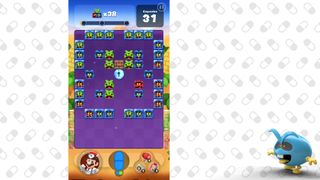Nintendo is still yet to leave its mark on mobile
Despite several attempts, Nintendo's charm has yet to properly translate to the mobile gaming space

When I was kid, it would've been a dream to play Animal Crossing and Fire Emblem on my phone. Battery life and touch screen control issues aside (I'm not even sure if we had touch screen phones back then), having those experiences on something as accessible and easy to carry as a phone would have been sublime.
Now, more than twenty years later, I can play Animal Crossing and Fire Emblem on mobile – except I haven't wanted to at all. It's not because I don't want to play games on my phone, it's because these iterations of my favorite franchises do nothing to draw me in. They do little to bring the iconic Nintendo innovation and charm to the platform.
Lacking the classic innovation

Nintendo's development mantra has always been about innovation. It's what Shigeru Miyamoto has pushed his developers to strive for. Arms producer Kosuke Yabuki talked about Nintendo's unique approach to game design during his GDC talk last year, citing that he would be finished if he couldn't show Miyamoto how Arms was different to other fighters. Miyamoto himself has said that they try to consider innovative ideas before each new game during multiple interviews, like this one with Game Informer on how Zelda: Breath of the Wild shook up the Zelda franchise.
Even if it's sometimes lead to failures like the Wii U, it has also lead to some of the most memorable and innovative of all time. Games like Pokemon Red and Blue, Wii Sports, and several Super Mario titles dominant the list of best-selling games of all time. But Nintendo's recent journey into the mobile space, something players and investors have wanted for years, hasn't proved as fruitful.

Super Mario Run is a basic auto-runner; Fire Emblem Heroes is a miniature tactical strategy game with heavy-handed gacha mechanics; Animal Crossing: Pocket Camp is a fragmented, lesser version of the relaxing classic; and Dr. Mario changes up the classic gameplay for the worst, and is diseased with greedy microtransactions. While these games have seen mixed reception from critics and fans, there's also the fact that they don't take many risks or try anything new. There aren't any indicators that Mario Kart's mobile versions will be any different, either. Pokemon Go is another story – but we're not talking about Niantic or The Pokemon Company here.
Nintendo's efforts on mobile have been lacklustre – either generic takes on established genres or rehashed, miniature versions of their own franchises – which means the Japanese gaming giant is yet to make an impact on the space. I doubt many players cite Super Mario Run or Animal Crossing: Pocket Camp as their favorite Nintendo games – or even their go-to mobile titles.
New Nintendo experiences in your pocket

There's no way Nintendo can take the experiences we love from its older or existing console or handheld platforms and directly transplant them onto phones. Sure, the technology is there to make something close to it, but the controls, screen size, variety of phone types, and limited processing power prevent the franchises we love from working the same way on mobile. We won't see a full-fledged Animal Crossing town, an actual Mario Kart course, or even a complete Fire Emblem grid map work on a tiny screen truly successfully.
Sign up to the 12DOVE Newsletter
Weekly digests, tales from the communities you love, and more
The way mobile games work, it's understandable that Nintendo has had to make the microtransaction structure work with its own titles, but when the experiences themselves aren't meaningful, it's hard to find reasons to play, yet alone pay. Mobile gaming is the perfect platform for Nintendo to try something new all over again. Take another character and give them the Captain Toad treatment, create a spin-off adventure that's nothing like the games they originate or go full Game Freak and design a portable friendly game like Pocket Card Jockey and completely blow expectations out of the water.

I know Nintendo hasn't been handling its mobile titles on its own, as the company has had several partnerships with companies like DeNa and Cygames who handle the brunt of the work. But, Nintendo can still influence design decisions and take a bigger role in development. If it wants to make an impact on mobile gaming, like it has with console, portable, touch screen, and motion control gaming, it'll have to put in the same amount of effort here.
If you'd ask industry analysts about the prospects of how Nintendo franchises would do on mobile a few years back, you'd hear about nothing but success. But Nintendo has made it clear that it is about more than creating mobile cash cows, as it wants to create unique experiences. Phones aren't an unusual way to play games any more, after all. So, Nintendo should take that in mind and take riskier bets with its IPs, both new and old, on smartphones. It has started in that direction, with Dragalia Lost, but still have a ways to go. Here's hoping that its next smartphone games offer something new – and truly Nintendo.
Aron Garst is a journalist and writer exploring the future of games and interactivity. Follow him on X at @GarstProduction.
Most Popular


